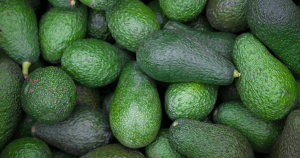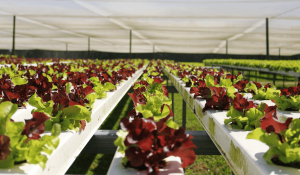
Fruits and vegetables are the cornerstones of any good diet. They are jam-packed with vitamins, minerals and plant chemicals that help protect our bodies from diseases such as cancer, stroke, diabetes and heart disease. So why are only 6.1% of adults eating the recommended amount of fruit and vegetables? (National Health Survey, 2020-2021)
It’s often a misconception that eating healthy is more expensive and time-consuming than the cheap, fast food options that have gained popularity. But eating healthy doesn’t have to be complicated or expensive!
We spoke to Emily Rametta, an Accredited Practising Dietitian who gave us some great tips to sneak more veggies into your day to hit the five servings recommendation.
– Simply add avocado and tomato to your morning toast
– Finley chop celery, carrot and zucchini to bulk up your spaghetti (hidden veggies for the kids!)
– Or better yet, throw a handful of spinach into your smoothie (we swear you can’t taste it!).
Emily also explained why eating the rainbow will help maximise your health benefits. And no, she doesn’t mean eating a packet of skittles!
- Red foods – like tomatoes and watermelon – contain lycopene, which is thought to be important for fighting prostate cancer and heart disease.
- Green vegetables – like spinach and kale – contain lutein and zeaxanthin, which may help protect against age-related eye disease.
- Blue and purple foods – like blueberries and eggplant – contain anthocyanins, which may help protect the body from cancer.
- White foods – like cauliflower – contain sulforaphane and may help protect against some cancers
How Has the Western Diet Changed Over Time?
Rapid urbanisation has dramatically changed the western diet over time. As a result, the average diet today consists of too many processed foods, saturated fats, animal proteins and simply not enough plants. According to Emily, these eating habits reduce our immune function making us more prone to getting sick. They also change our gut bacteria, which significantly impacts our whole body and increases our risk of mental health problems, dementia, and lifestyle diseases.
Unhealthy diets are also a significant contributor to the ongoing devastation of our planet. Essentially, unhealthy diets equal an unhealthy planet. Plant-based and whole foods use fewer resources such as land and water, meaning their environmental impact is less than processed or animal-based foods. As a result, experts are calling for a more “planetary health diet”, which recommends doubling global consumption of vegetables, fruits, nuts and legumes, ditching refined grains in favour of whole grains, and at least halving our consumption of red meat and sugar.
The Australian Guide to Healthy Eating

The Australian Guide to Healthy Eating – pictured below – is a great resource that visually represents the proportion of the five foodgroups recommended for daily consumption (Australian Government, 2017). This guide is based on over a thousand of the highest quality scientific studies reviewed by the country’s leading experts in nutrition. Dietitians are all about the science of nutrition and making this accessible to the general population, so it’s a really valuable tool.
Here at Green Endeavour, we believe that fruits and vegetables are the undisputed champions of healthy eating! They are high in nutrients and fibre and low in calories (plus, Aussies don’t eat enough of them). So, when the guidelines are re-released in 2024, we would love to see fruits and vegetables be the most represented food group on the plate. Not only to keep humans healthy but to keep the planet healthy too. Click here if you’d like to learn more about Green Endeavour!



